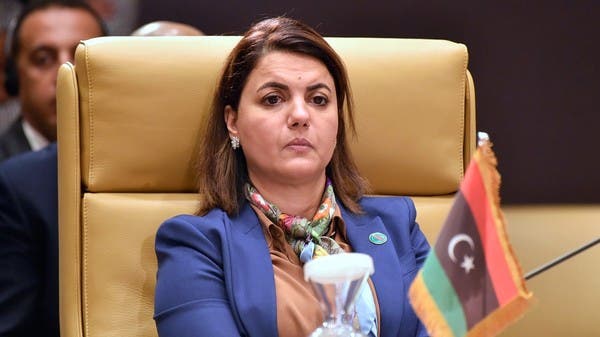
TRIPOLI, Nov 8 (NNN-AGENCIES) — Libya’s presidential council suspended Foreign Minister Najla al-Mangoush from her duties days before an international conference is to make a new push to restore stability to the war-battered nation.
The council opened an inquiry into alleged “administrative breaches” by Mangoush, spokeswoman Najla Weheba told the Libya Panorama television channel.
The El-Marsad news website, which is close to eastern-based strongman Khalifa Haftar, claimed that the council accused her of taking foreign policy decisions without consulting it.
A decree from the council said its vice chairman Abdullah Allafi would head a commission of inquiry that would report its findings within 14 days.
The political infighting in Tripoli comes amid a new international push for fresh presidential and parliamentary elections to help stabilise the war-battered North African nation.
US Vice President Kamala Harris is to join French President Emmanuel Macron and other world leaders at a conference in Paris on Nov 12.
Libya has been struggling to move past the violence that has wracked the oil-rich nation since a 2011 NATO-backed uprising toppled and killed dictator Moamer Kadhafi, with political wrangling over the date of the twin elctions
the latest stumbling block.
A ceasefire between eastern and western factions last year led to a fragile unity government taking office in March, with a mandate to take the country to elections.
Part of an agreed roadmap was to hold elections on the same day.
Foreign powers have been pushing hard for elections to be held as scheduled on Dec 24, after the date was agreed at UN-led talks last year.
The UN Support Mission in Libya, or UNSMIL, believes that a double vote would boost the “credibility” of the polls and “the acceptance of the results of the elections”.
“Respecting the principle of simultaneous presidential and parliamentary elections on 24 December 2021 is needed to preserve the integrity of the electoral process,” UNSMIL said in a statement late last month.
But there are deep disagreements between the government in the capital in the west, led by Prime Minister Abdulhamid Dbeibah, and parliament in the eastern city of Tobruk, led by Aguila Saleh.
In September, Saleh signed off on legislation for the December presidential election, which critics said bypassed due process and favoured a run by his ally, Haftar.
It sparked an angry reaction from Tripoli.
Haftar is widely expected to stand as a presidential candidate, but is despised by many in western Libya for the devastating offensive he launched against the capital in 2019.
Then in early October, parliament split the dates of the vote by postponing legislative elections until January.
Just over two weeks later, Dbeibah promised the vote would be held “on time”.
As the bickering over the election timetable has dragged on, low-level fighting between rival militias has punctured the ceasefire.
Late last month, Libya’s only operational oil refinery was “severely” damaged after gunmen battled for three hours around the complex, the National Oil Corporation said. — NNN-AGENCIES





